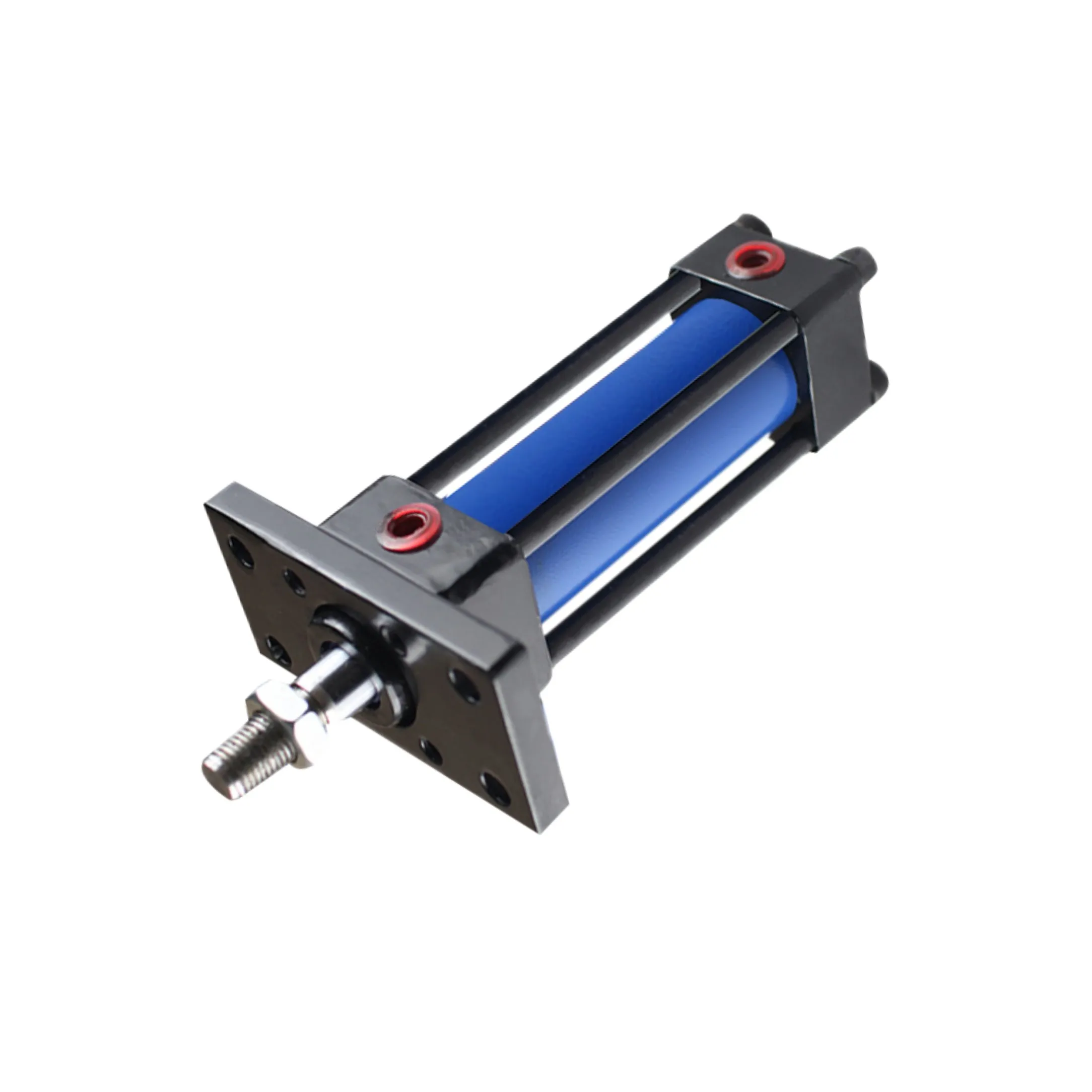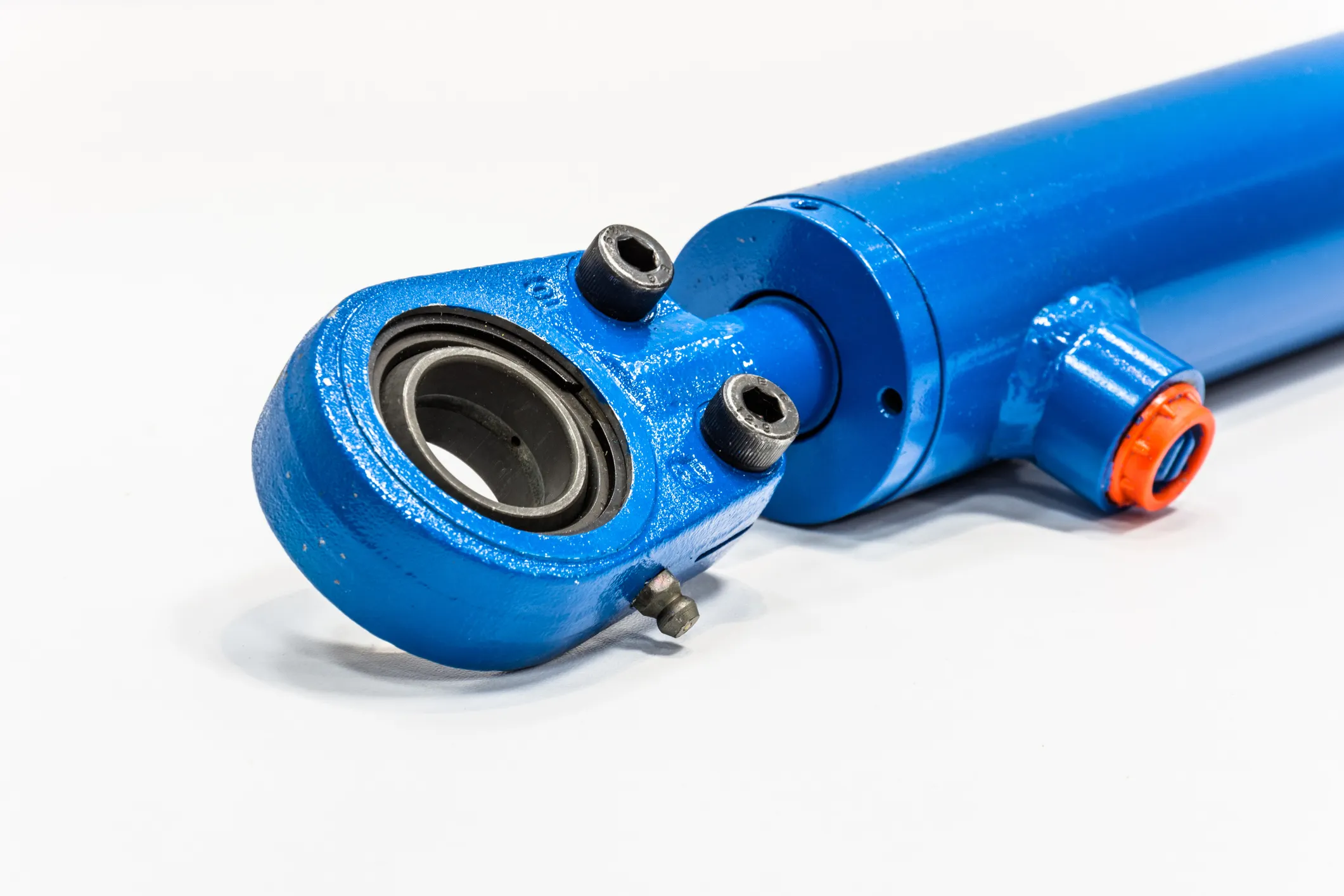The Versatile Role of Industrial Hydraulic Cylinders in Oil and Gas Industry
Understanding the Hydraulic Cylinder
Industrial hydraulic cylinders play a pivotal role in the oil and gas industry, providing the necessary force to operate various heavy machinery and equipment. These hydraulic cylinders are mechanical actuators that are used to create linear motion and force through the use of pressurized hydraulic fluid.
Key Components and Structure
- Cylinder Barrel
- Piston
- Piston Rod
- Seals
- Hydraulic Fluid

Control Cylinder Operation Overview
Controlled by valves, the hydraulic fluid is pressurized to move the piston within the cylinder, generating the required force for the operation of machinery. The operation of hydraulic cylinders is based on Pascal’s principle, which states that a change in pressure applied to an enclosed fluid is transmitted uniformly in all directions.
Types of Hydraulic Cylinders
In the industrial sector, various types of hydraulic cylinders are used, each serving specific purposes:
Single Acting Cylinders
Single acting cylinders apply force in one direction only, commonly used in applications where the load needs to be lifted or pushed in a single direction.
Double Acting Cylinders
Double acting cylinders apply force in both directions, allowing for more versatile operations such as lifting, pushing, and pulling.
Telescopic Cylinders
Telescopic cylinders consist of multiple nested stages that can extend and retract, providing a longer stroke length compared to other types.
Differential Cylinders
Differential cylinders feature two pistons of different diameters, allowing for a higher force output with a smaller initial input.

Advantages of Industrial Hydraulic Cylinders
- High Power Density
- Precise Control
- Reliability
- Compact Design
- Easy Maintenance
Industries Utilizing Hydraulic Cylinders
Industrial hydraulic cylinders find extensive applications in various sectors, including:
Manufacturing
In manufacturing, hydraulic cylinders are used in robotic arms, assembly lines, and material handling equipment to enhance efficiency and productivity.
Construction
Construction machinery such as cranes, excavators, and bulldozers rely on hydraulic cylinders for lifting, digging, and moving heavy loads on construction sites.
Mining
In mining operations, hydraulic cylinders power drilling rigs, rock breakers, and conveyor systems to extract and transport minerals effectively.
Agriculture
Agricultural machinery such as tractors, harvesters, and irrigation systems use hydraulic cylinders for tasks like plowing, harvesting, and watering crops.
Oil and Gas
In the oil and gas industry, hydraulic cylinders are crucial for operating drilling rigs, pipeline maintenance equipment, and offshore platforms to support exploration and extraction processes.
Selecting the Right Hydraulic Cylinder
When choosing an industrial hydraulic cylinder, factors such as load capacity, stroke length, bore size, and operating pressure should be carefully considered to ensure optimal performance for the specific application.
Maintenance and Care
Regular maintenance of hydraulic cylinders is essential to prolong their service life and prevent potential breakdowns. Inspection, lubrication, and cleaning are key practices to ensure smooth operation.
Installation Guide
Proper installation of hydraulic cylinders is crucial for their effective performance. It is important to follow manufacturer guidelines and ensure secure mounting and alignment for safe operation.
Maintenance Tasks
Cleaning
Regular cleaning of hydraulic cylinders prevents the accumulation of dirt and debris, which can affect their performance and cause premature wear.
Lubrication
Applying the right lubricant to moving parts reduces friction and wear, ensuring smooth operation and extending the lifespan of hydraulic cylinders.
Checking Wear
Periodically inspecting hydraulic cylinders for signs of wear, leaks, or damage helps identify potential issues early and address them before they escalate.
Fault Diagnosis and Solutions
In case of hydraulic cylinder malfunctions, it is crucial to diagnose the problem accurately and implement effective solutions to restore functionality. Common issues include leaks, seal damage, and piston misalignment.
Preventive Measures
To minimize potential problems and optimize the performance of industrial hydraulic cylinders, regular maintenance, proper installation, and adherence to operational guidelines are recommended. Implementing preventive measures can help prevent costly repairs and downtime.
Choosing the Right Hydraulic Cylinder
When selecting an industrial hydraulic cylinder, factors such as application requirements, environmental conditions, and budget considerations should be taken into account to ensure the best fit for the intended use.
Long-Tail SEO Articles
Exploring the nuances of industrial hydraulic cylinders in oil and gas applications through in-depth articles can provide valuable insights for industry professionals, highlighting key features, benefits, and best practices for optimal performance.
Company Focus
Our company specializes in hydraulic cylinder replacement manufacturing, offering a comprehensive product line and serving as a leading supplier in both domestic and international markets. With a focus on professionalism, international certifications, customized solutions, advanced production equipment, and exceptional after-sales service, we strive to meet the diverse needs of our customers and deliver high-quality hydraulic solutions.
Author: lyl
